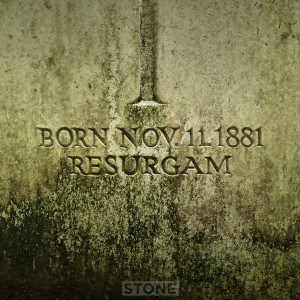
I am afraid I am heartily sick of poppies. I was in Ypres in the late summer of 2014 and started to write something about what the centenary of the war meant and how it was making me feel. It was the week the commemoration started for real, the end of the phoney war. I’ve just re-read it and what I had realised, other than it was a rubbish, was that the oncoming commemoration was already making me uncomfortable. I know I drone on about the whole thing a lot. I know some people find it dull and I don’t especially mind or care as it’s my thing and it’s important. It’s been part of me for as long as I can remember in various blurred shapes and faint colours. Something drawn the old photos, letters and memories, hard-coded from way back, tales of the missing and the left behind which encircle you. This leads to devouring the facts and fictions and all that you see and hear on the subject for most of my life. For me, forget Spitfires and D-Day, Dunkirk and El Alamein for a minute, they are an interesting part of the personal filmstrip, but this, this Great War is my war.
Since 2013 it has felt like people were taking big pieces of it away, carting off chunks and painting pieces of it out. Sanitising, telling people who had an ear a different story, removing inconvenient truths and feeding the masses something that made me really uneasy. History has many cunning passages, contrived corridors and issues. My individual view was slowly dragged from its cell, pushed up against a post, a white square of pull-through attached to the tunic, blindfolded and shot. The carefully assembled fragments scattered into a landscape full of misinformation and popular interpretation. History is never fact, even your own personal story is made up, a jigsaw of the half remembered, photos, snapshots and stories that are half-whispers, but some of it is and some of it is half-truth and some of it is lies with an agenda and I don’t like what I’m seeing.
It’s the establishment misappropriating memory, not just of the Great War either. We are exposed to it every day. Before the centenary I could just ignore it or at least choose which chunks I bothered listening to, dismissing the bits that are clearly ill-thought out bunkum or clearly served a purpose beyond actual history. But the revisionists have massed, gathered strength and have allies in government, trade and commerce and the business of war. I sense old lies are resurfacing and are being reused.
I used to just get on with my view of how it all worked based on what I read and saw; the experiences I’ve had, bits of information gleaned from others who know their subject. There’s those who I’ve met deep in the fields in the grass, mud, and broken wire of the old front lines. I know it’s a personal picture and faulty but is built on what I believe are reasonably strong foundations gradually collected and sifted over a long period of time. Some of it comes from the everyday family memory, other morsels from reading accounts from all sorts of resources: records, archives, papers, articles, the internet and books; I’ve seen it through the eyes of Tommy and Fritz, from the tally-ho at the top down the to the rheumy-eyed old ordinary ranks, the salted memories. There are the complex logistics and battle plans, maps, formations, photos and orders and always there in the foreground the words of men, the thoughts of the old boys, interviewed, minds open to conversation before they hop off.
They are all dead now, but thanks to the work of many their thoughts were kept, we have a record. It is quite a thing and often holds the key to the plain truths of what it was like to live in this war at home and abroad, be it in a factory or a trench. Although age has wearied them, you know that what they’re saying has more basis in fact than any amount of opinion from the other established sources because they were there. They experienced the now buried landscapes, saw the facts of it as they were, they saw the shells burst, lived with rats and mud, played cards, got bored, dreamt of home and saw their friends get killed or injured in the first real industrialised war.
The problem is their voices are now increasingly drowned out by the drum-fire of the media mouthpieces following and followed by the establishment. We see our suited politicians on their jollies to the Western Front. The solemnly bowed heads followed by Champagne and vol-au-vents and chit-chat, they sit front-and-centre where the descendants of soldiers that took part as the ordinary Tommy will find it as difficult to get a seat as most of us are at an international sporting event once the corporations prawn sandwich brigade have taken all the freebies.
It is now just over a year since I ground my teeth flat listening to a sober pink-faced David Cameron, in an expensive suit waffling away. It was on a television in an apartment a few miles behind the old front line in Flanders, we were a few hundred feet from the death cells at Poperinghe where lads the same age as some of my children were shot for having a nervous breakdown and running away under fire. A year on and we still have the relentless creeping barrage of sombre tones of wheedling correspondents fawning over the inevitable presence of a royal or a head of state. For me personally it has reached almost emetic levels. The proceedings in any coverage are wrapped in an inevitable almost industrial level of poppy-festooning using its imprint as a codex for patriotism and nationalism that veer off into almost celebrating winning a war that nobody really won. And like most wars nobody was ever going to win it because the people that fight in them don’t, the people that stay behind and call the shots and sell the guns and tanks and bombs do. Those men and women that drone on behind a lecturn wearing nicely cut expensive clothes.
It has hit new levels of sycophancy and irrational behaviour in the last week with Poppy shaming if lines the establishment has drawn are not followed exactly. The re-appropriation of symbols just goes on and on. And in all this the slightly surreal bandying about of the word ‘respect’ by newspapers that have tapped dead girl’s mobile phones. The constant use of the word ‘fallen’ to describe the dead, those blasted, ripped and torn, fragments of people. It just feels like a void is forming inside us all, one where we bow down in near hysteria at an abstract whilst completely forget the humanity that was involved, those people who are still out there in the fields, the orphans, the widows living on in the photos on mantelpieces and medals and clippings in cupboards and drawers.
And here we are… The likes of Britain First and their ugly, twisted parents; the EDL, British Movement, the National Front and back to the grandparents with the likes of Mosley and the British Union of Fascists have already stolen most of our symbols of national identity, outmoded though most of them are. They war on Death – for lives; not men – for flags. Ours red cross on white is of course long gone, trodden and ground into the dirt in the stampede at the end of our dark empire as part of the Union Flag, torn and burned as the pink contracted back across the globe. Now the flags mostly festoon the shoulders of buffoons, a tribe of drunken fools. Tattoos of it still writhe on skin over muscle, while fingers point and mouths twist up and eject hate at anyone who doesn’t support their team, anyone not like us; not the same ethnicity, gender, sexuality or religion. Anyone who dares to question these members of our ‘Christian’ nation, and it’s green and pleasant lands full of redundant churches and shrinking congregations. As far as I’m concerned they are welcome to the flags for what it’s worth. Between the far right and the centre there is a smaller and smaller gap. And I’ve never really cared much for flags or borders, nationalism isn’t something to be proud of or indulged in beyond the inevitable disappointments of international sport and even then who can really be bothered with it when it’s just about sponsors money. Nationalism is mostly a stinking empty pot for the narrow-minded and ignorant to fill with piss and bile.
And now again Armistice Day is approaching, the real one, the eleventh of the eleventh. I see the poppies fall and slide into Social Media feeds, ‘share if you think we should remember our brave boys’ tagged at the top by ‘Britain First’. Another year has turned, again they have taken the poppy, a symbol of remembrance and soiled it. They are out there on the virtual street corners of the internet where ‘these colours don’t run’, pumped up with false pride at something that doesn’t and never has existed selling cheap t-shirts to the casually unthinking and the small-minded, the part-time racists. These people are taking a cut of remembrance, our national memory, a slice of the Poppy and all that goes with it, misusing it. Using it to fuel the kinds of hate we fought against in Europe 75 years ago, don’t give them your money, your shares or your likes. And disturbingly they aren’t alone.
There are questions from some quarters regarding the British Legion at the moment. These coalesce around the sponsorship deals in which they are involved, currently benefitting from money from one of the world’s largest arms dealers; BAE Systems. On top of this there is the increased amounts of commercialisation and corporatisation of their fundraising; the glitter of expensive crystal laden poppies an atavistic totemic frippary for the rich, grotesque and tasteless shaking your money maker. The pop culture is as bad, from poppy sequinned bands squirming away to the execrable cover version of No Man’s Land last year. A version so bad it sank my metaphorical battleships. Originally written by Eric Bogle in 1976, it is a lament to a 19 year old Irish boy soldier killed in the Great War. The recording from 2014 by Joss Stone and Jeff Beck had the anti-war sentiment surgically stripped out instantly converting it into well-produced but ultimately banal X-Factor song, it no longer condemns war at all, merely sentimentalises it for fear of offending who exactly? The arms trade, the city? us? It feels like part of a tide of new militarism, children pictured wearing a giant poppy and yellow T-Shirt emblazoned with ‘Future Soldier‘. It’s not the British Legions job, they are the remember factory, remember? And although it’s nothing to do with RBL, sectarianism is alive and well and it can be apparent from what poppy you wear, red or white?
And today my attention is drawn again to another campaign, the #PoppySelfie. Celebrities holding a poppy to their lips to reinforce the 11am silence tomorrow. The RBL press release comes with figures, 38% of people are not planning to recognise the silence, perhaps they have their reasons, who has the right to question them? Celebs hold poppies to their lips and take a selfie, post it online. When did this kind of vainglorious vulgarity become a thing? I’m trying very hard not to say FFS, but I just have.*
None of it is looking too great from where I peer cautiously over the parapet. It all seems pretty empty.
It is still important not to forget what the Poppy Appeal actually does amidst this. They help actual people. An enormous number of volunteers, some of whom I count as friends, raise huge amounts of money using their time and often their own resources to do it. The Poppy Appeal funds and runs care homes, has a household adaptions service and supplies mobility aids. All this supporting people broken by the experiences of fighting for whatever it is they are told to fight for. They often come out with a PTSD, bodies with bits missing and minds damaged by what they have seen and done in the quest for whatever supposed freedoms and liberties capitalism has decided they should unquestioningly fight for in our name.
Over the last 20 years The poppy has become a brand, in the new language of the market, it is protected and trademarked. In the 1970s, back home, we used to buy them from a thin old chap in the precinct of my home town. He had a beret, medals and one leg. It is fundamentally the same cheap red paper and green plastic thing. That black button made of Haig’s distilled guilt holding it together. The words on the centre and an added leaf are the only change. Yet it feels ever more removed from then, it feels as if it’s been remilitarised; is being used as a weapon itself, a weapon against those who choose to remember how they want to, not how they are expected to.
I think what has bothered me most this week is we see the commentators in the media and the government itself have taken the poppy too. They are using it to beat people who choose not to wear one, who choose not to remember in the government approved manner, the quid-in-a-bucket’s worth of ‘lest we forget’, state sanctioned cost of remembrance. It’s not just the poppy either, it’s the processes you use to remember. You have to do it right, you have to bow exactly the right amount at the war memorial, the media says so. You must ‘remember them’ how the state tells you to or someone will try and make a stick out of it to beat you with. Yet we live in a world where economics shape the battle landscape. Stocks and shares declare the next war.
In 2014 I bought half a dozen paper poppies. All come on handy non-denominational sticks to push into the soil of the Western Front. Some were for family, some were for relatives of friends I’d promised to say hello to, and some where ‘spares’. These are for complete strangers, just unknown men dead in the fields. It seems stupid I understand that, the dead don’t see or feel, they don’t know; we do it for ouselves in some tacit little acknowledgement of their existence, a hope maybe of the same. But it is also a nod at the hidden story, the life that stopped and made everything different back then, a perhaps faceless act for someone who didn’t get to go home. It was what it always should have been, flowers on a grave. We stopped and thought and stood then knelt and pushed these things into the loam and stood and looked and thought some more, then we moved on along the lines. I chose not to wear one. I know, I have no shame obviously, how could I etc. It appears I could be berated online or in the street for it because it’s okay now to poppy shame people making a different choice, be it the colour of the thing or wearing one at all.
Yesterday I saw several variations of this. The worst was a public figures berated for choosing not to stand in a particular spot. He has his own reasons. He chose not to blindly follow what is expected. I saw the words ‘lack of respect’ waved in his face for it. Low value snide and ignorant point-scoring at best. We all have our reasons to do things the way we do and why shouldn’t we be allowed to do it, do we really have to conform so exactly to not offend a newly discovered government and media line. How absurd is this? And the type of people who come up with this fatuous reasoning obviously think nothing of the personal story, the why and wherefore of how we all individually remember, of who we are remembering or how we do it. In fact even if we choose not to, why so much angst? There are reasons. The argument will usually come from the same people who turn out weary lines about people fighting for our freedom, yet want to remove the choice about how we should only express it unless it conforms to how they think we should.
Published November 11th 2015.
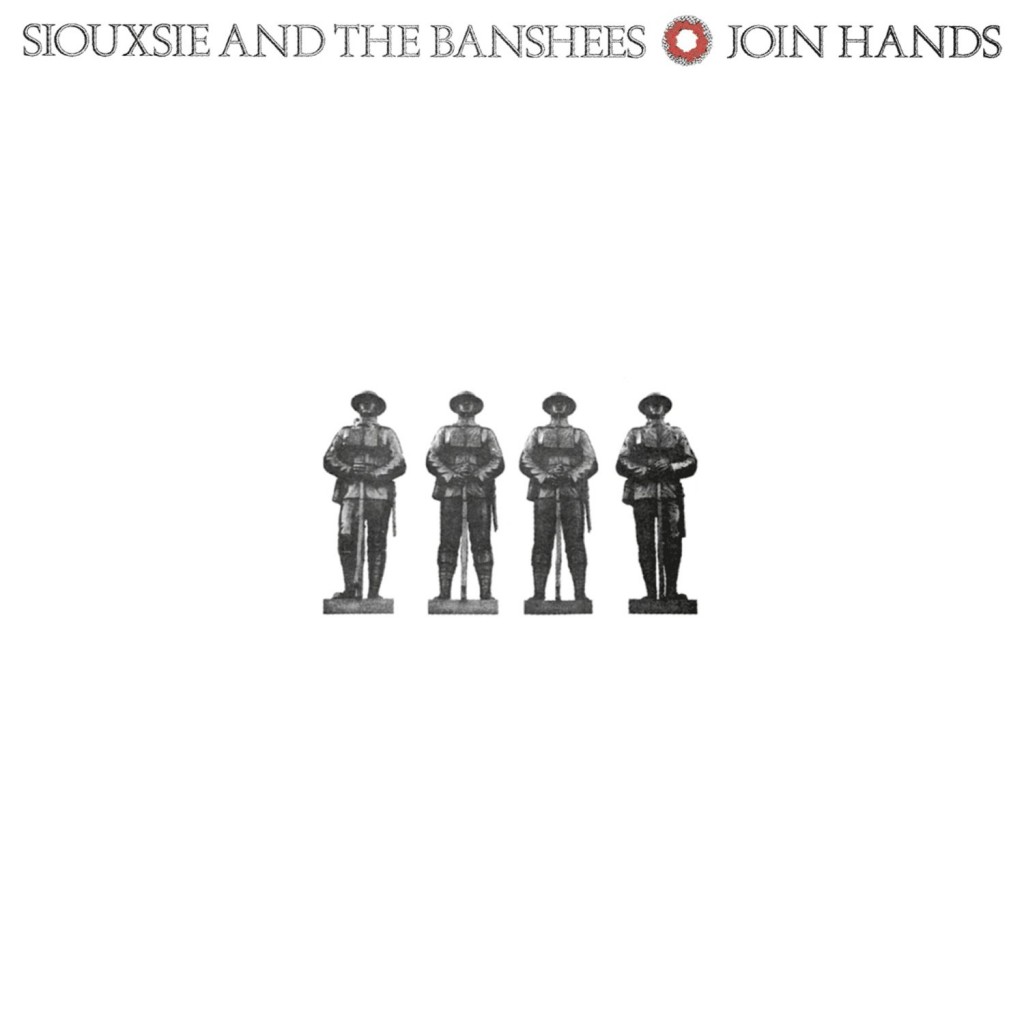
*Addenda 10th November 2015.

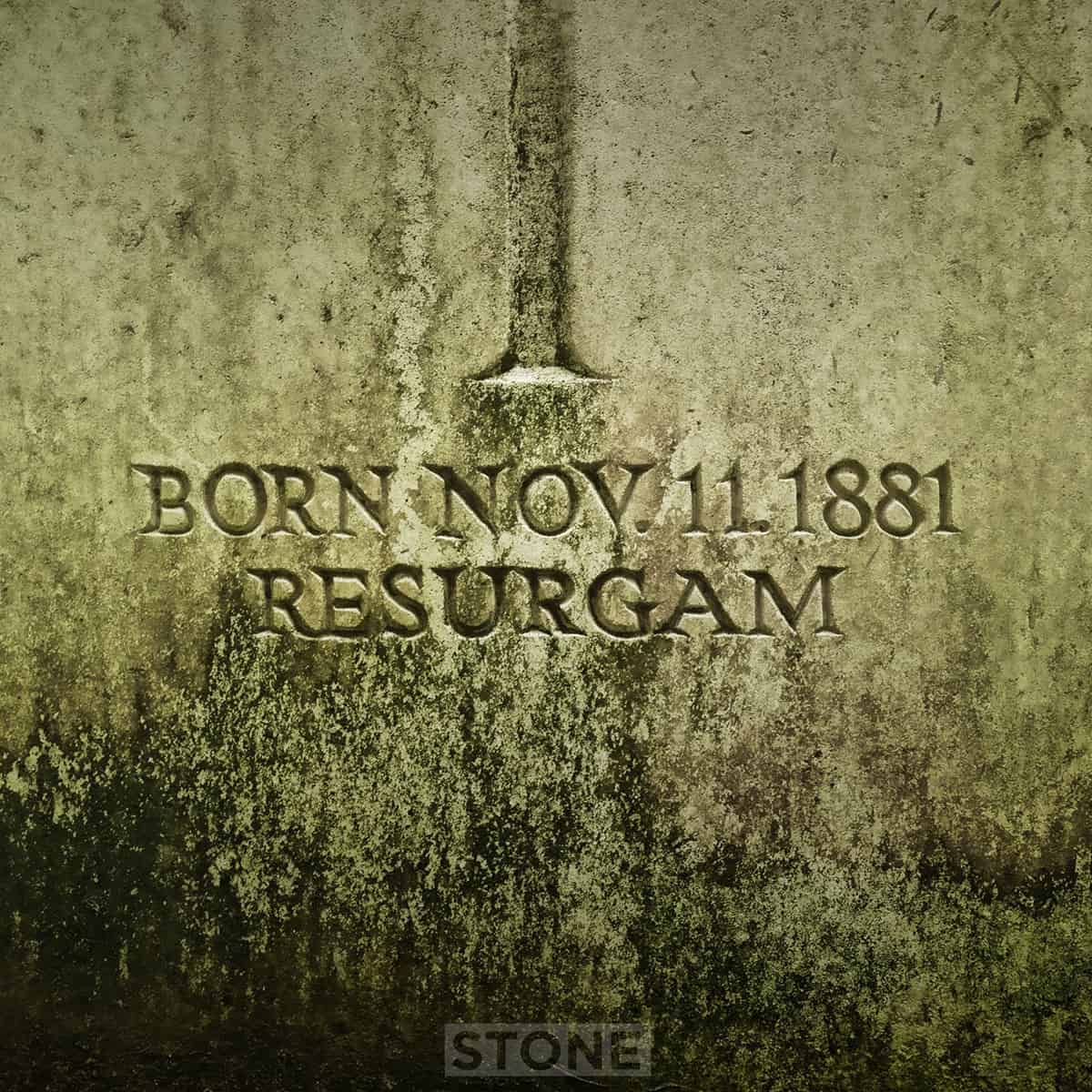
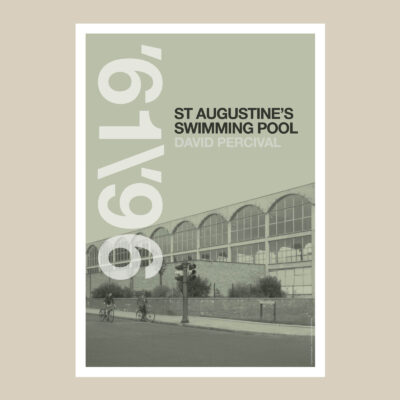
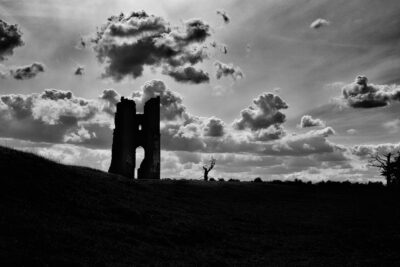
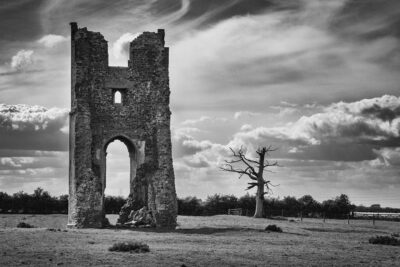
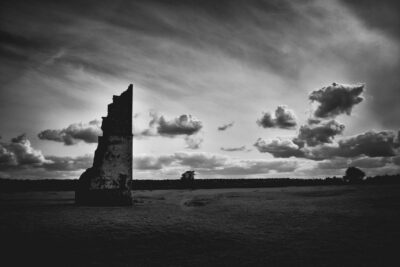

I’ve supported the Poppy Appeal on & off over the years & have not worn a Poppy since I was a kid at school. I am appalled by the hateful posts accusing various people of disrespecting the Poppy whilst promoting their own sanctimonious (and often awful) ends. The terror of WW1 and WW2 horrifies me and could keep me awake at night if I let it. Two visits to Thiepval (encouraged by you, unwittingly) have left me silent and sad.
Just saying I understand even if I don’t say it so eloquently.
I too am sick of the poppy & probably for similar reasons.
In 2015, I completed a 3,500 mile journey across Europe to commemorate the dead, wounded & missing from both sides during that terrible war. I left 2,015 poppies along my route which began at the unknown battlefield of Kumkale on the Asian side of the Dardanelles & finished at the end/beginning of the Western Front near to the Belgian town of Nieuwpoort.
The journey nearly broke me, both physically as well as mentally. As I was on my own, it gave me a lot of time to think about it all, the futility of it & also the way we remember it.
I’m probably just as guilty of using the poppy for my own gains as some of those people that you talk about, but no more, as I wear a white one now.
The commercialisation of the RBL, only become apparent to me when I was planning my little journey. Ok, so they gave me the poppies free of charge, but that was it. No help or publicity was forthcoming. This might sound like sour grapes, but their actions or lack of has made me delve deeper into what the Legion & the poppy has become.
The Legion are only interested in one thing & that is money. They got about 13 million pounds from the poppies around the moat display of 2014, so why would they be interested in a lone Englishman who was following the battlefields in 2015. They weren’t & because of this the British public weren’t either. I managed to raise 17p per mile for the Legion & I wished that I hadn’t bothered.
The poppy was intended to be a symbol of remembrance for the survivors & the families of the dead of the Great War, they’ve all gone now & the poppy has morphed into something else, something that isn’t all good. Woe betide us who choose to wear a white one or none at all. We face similar treatment that the conscientious objectors received a century ago. (Quite fitting I suppose!)
We are labelled as people who disrespect the dead & the sacrifice that they made, when in reality we have seen much more of the “truth” & that is why we shun the red poppy. Remembrance is for the souls of the living, as the dead are past caring….
This is complicated because it’s not only about the methods of a charity in the unenviable position of finding money to support a new generation of veterans as well as those of WW2 and later conflicts. It’s also about politics, social trends and how we perceive our war dead, particularly those of the First World War.
When I was a child everyone wore a poppy. I am aware of only one relative who took part in “the Great War”, he survived it as a POW and eventually took Holy Orders. He had been a plumber so I assume his experience influenced his decision. He returned to France in WW2 as a chaplain. For years I didn’t even know this much and although I’ve always been moved by stories of war I wasn’t that interested until I noticed that there were CWGC graves in the local cemetery. I began to research them for a blog and I suppose that’s why I’ve read this article and I’m responding to it.
I wear a poppy if I can get one. I live in one of the few London boroughs which still has an RBL club yet I can’t find anyone selling them in the street here. I bought one of those fancy Somme 100 brooches from the Poppy Shop online and it’s clear that they are encouraging the “Buy now! Limited edition!” mindset (the slightly different Passchendaele 100 brooch may also find its way here). I buy and wear military charity tshirts and other clothing because they’re useful for work, it sends some money in the direction of those who need it and it might persuade someone else to look at their websites and do the same. I don’t blame the RBL for trying to maximise what they get but I do think they get it wrong sometimes. A few years ago they “set up” a very young girl, part of a choir promoting the Poppy Appeal, by revealing live on television that her dad was present at the Festival of Remembrance event rather than at sea. She was in tears at the sight of him (which is probably what they had hoped for) and so was everyone watching it. The criticism kicked in when she turned up live on breakfast shows the next day looking exhausted. There were emails.
It’s a relief to know that the installation at the Tower of London left others as unimpressed as it did me. This was a project funded by grants to promote industry and tourism in the county where they were made; there was a very generous payout to the artist involved. The fact that it was based on a poem about seas of blood was forgotten very quickly and I noticed that the royals who visited were kept well away from the place where it looked like blood pouring from a gunshot wound. It should have come at the end, in 2018, but I realised early on that anyone planning to make money from the centenary made sure they did so very early on. Attention spans are shorter now. They are now taking the ceramic poppies thay didn’t sell “on tour”. I suspect this involves more grants from the Department of Culture Media and Sport.
Meanwhile those graves in suburban Britain are almost forgotten and rarely visited by anyone other than the Commonwealth War Graves Commission employees who maintain them. I wonder how much longer they will continue to do so. I suspect the CWGC are in a similar position to the RBL in that they have to fundraise and concentrating on those huge showstopping cemeteries in France and Belgium is vital to that effort. I doubt that any politician would want to be photographed in a scruffy council run cemetery.
I can’t claim to have been a regular attender at my local Remembrance Sunday event but I stopped going after 2012. I took photos that year for a blog post and found myself next to an older woman who passed judgement on the appearance of a young couple who had turned up for it. They both had long hair and were wearing the kind of clothes that I’ve worn in the past. I ended up using their photo on the post and if I do anything at all on 11/11 it’s visit the guys buried down the road. There’s the one who died in a prison infirmary, the two who died in the local asylum, the nineteen year old Lancaster pilot who crashed on the way home, the ones carried off by pneumonia, cancer and syphilis. If I can afford it I take flowers, I would cover those graves with them if I could. Someone I asked me recently why I research war graves and I didn’t have an answer but I thinks it’s because if I didn’t no one else would.
A bit long but a relief to be able to say what I really think.
And then there was the war at sea. There are memorials but they commemorate far fewer casualties most of whom would have been burnt or blown to pieces or drowned or…
I never met a grandfather. My mother’s dad was a stoker who survived being on more than one ship sunk in WW1 – including at the Battle of Jutland. Ship’s boiler rooms were as near as you could get to Hell but he survived, as did the Tuberculosis he contracted down-below slaving in the heat and steam.
After the war he made his way back home hoping to earn a living. By trade he was a labourer. I have his last diary (and the photo of a short but well-built sailor wearing his uniform with pride). He’d find work but the TB continued to waste him away and his weight would drop back to a few stone – so he’d have to give up. After a degree of recovery he find work again (perhaps employers were sympathetic) – but the cycle would repeat. Mum remembered him attempting to crawl to work.
His name is on no memorial.